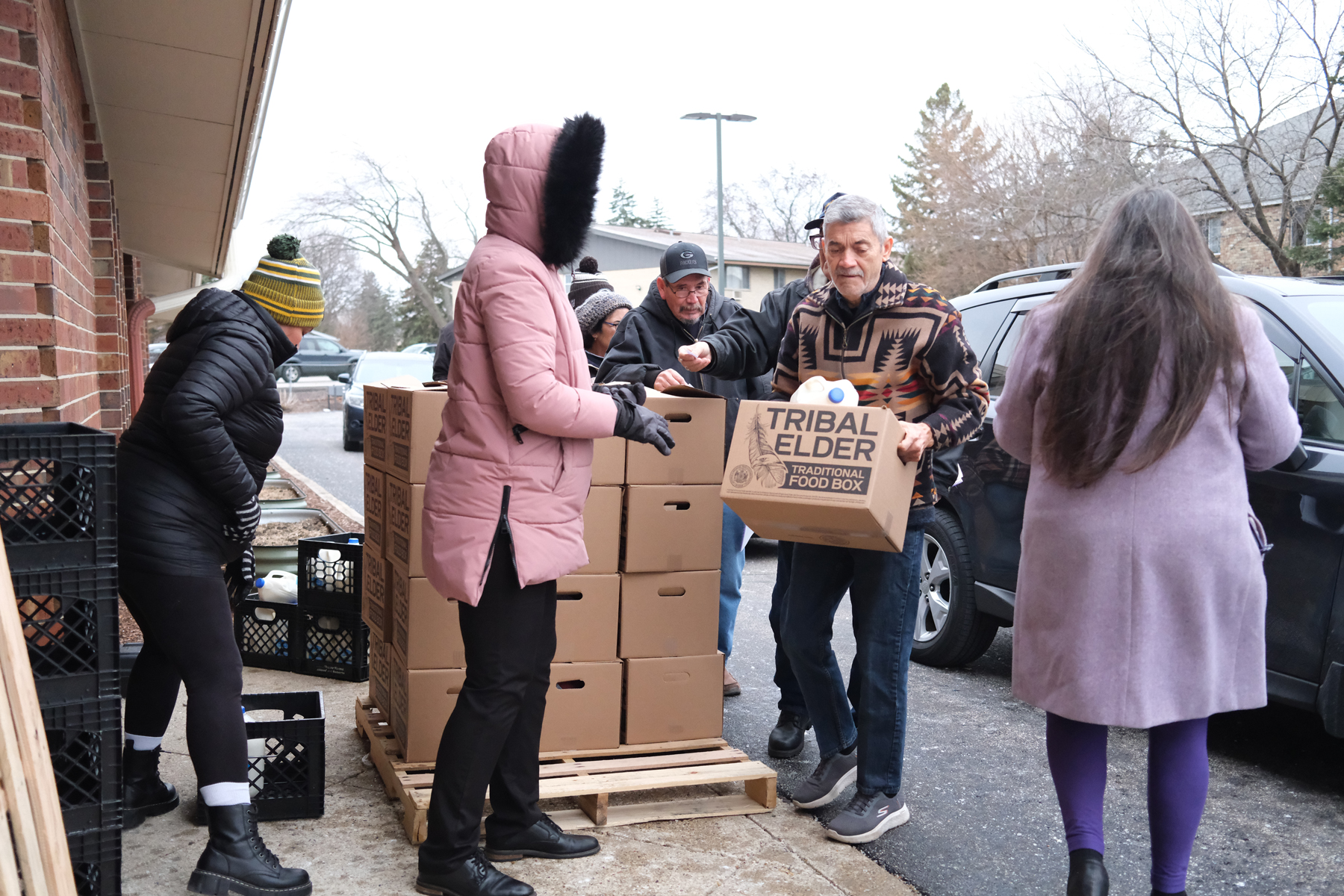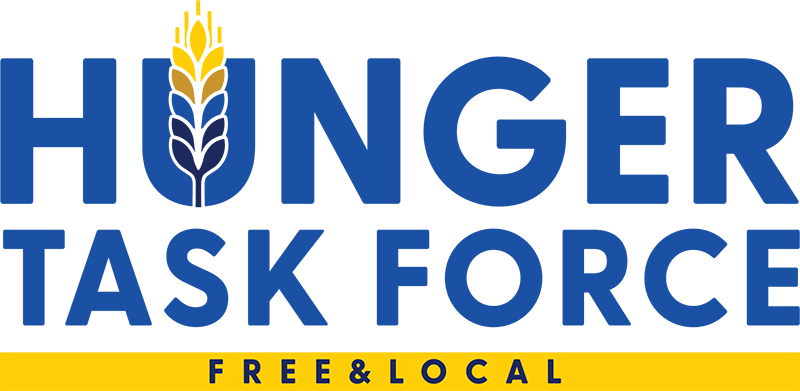Food box program brings a taste of Indigenous culture to tribal elders in Milwaukee
Trisha Patton is happy to see tribal elders’ faces brighten up when they receive boxes of Indigenous foods.
They might not have had the food for decades, since leaving a reservation.
“It’s going back to those culturally relevant diets,” said Patton, who manages the Southeastern Oneida Tribal Services (SEOTS) office in Milwaukee. “Elders have those conversations and they remember when their grandmother made this for them.”
Her office is one of four tribal sites in Milwaukee participating in the Tribal Elder Traditional Food Box program through the Hunger Task Force.
Food boxes containing culturally relevant foods are distributed to low-income tribal seniors monthly at the sites. The other sites are the Ho-Chunk Nation Milwaukee Branch, Gerald L. Ignace Indian Health Center and Indian Council of the Elderly.
About 1,500 food boxes have been distributed through the program so far, and about $145,000 has been invested in Indigenous food producers.
The program helps tribal elders and their families living in Milwaukee reclaim some of their culture.

The 1956 Indian Relocation Act moved Indigenous adults and families off reservations and into cities like Milwaukee in order to find work and housing, which were sorely lacking on tribal lands at that time.
But many families only found continued poverty in the cities, as well as other negative experiences, such as racial abuse from residents and police.
Many Indigenous families in Wisconsin started moving back to the reservations starting in the 1990s after the implementation of the tribal-state gaming compacts. Tribal nations then had more revenue and more jobs, and started building more housing and infrastructure.
But many Indigenous families also stayed in the cities, where they had become established.
The food box program now serves 815 low-income tribal elders in the Milwaukee area.
Much of the food in the boxes comes from tribal nations in Wisconsin and Minnesota.
Haudenosaunee white corn products, such as corn bread, berry corn mush and corn flour come from the Oneida Nation Farm and Cannery, as does bison meat and apple products, such as apple sauce and apple cider.
Maple syrup, maple sugar and hydroponics produce come from the Bodwéwadmi Ktëgan Potawatomi Farm in northeast Wisconsin.
And manoomin, or wild rice, comes from the Red Lake Ojibwe Nation in Minnesota.
The food box program started as a pilot in 2021 on the Oneida, Menominee and Red Cliff Ojibwe reservations in Wisconsin.
It has since expanded throughout Wisconsin to include each of the 11 federally-recognized tribal nations within the state, as well as in Milwaukee.
Matt King, CEO of Hunger Task Force, said the program doesn’t face the threat of federal cuts because it’s fully funded by the state through tribal gaming revenue. In 2023, Gov. Evers proposed $2 million a year for the program, but the Republican-led Joint Finance Committee approved $1.5 million a year through 2025.
The program is helping to support 40 small local producers, including 22 tribal producers from Wisconsin, Michigan and Minnesota.
“It allows not only Indigenous vendors but local vendors as well to showcase their products and what they are capable of producing,” said Jodi King, Indigenous diet and wellness coordinator at Oneida Cannery. “With so much unhealthy processed food in our world today, I’m glad our elders have this program where they can enjoy healthy local products and produce.”
